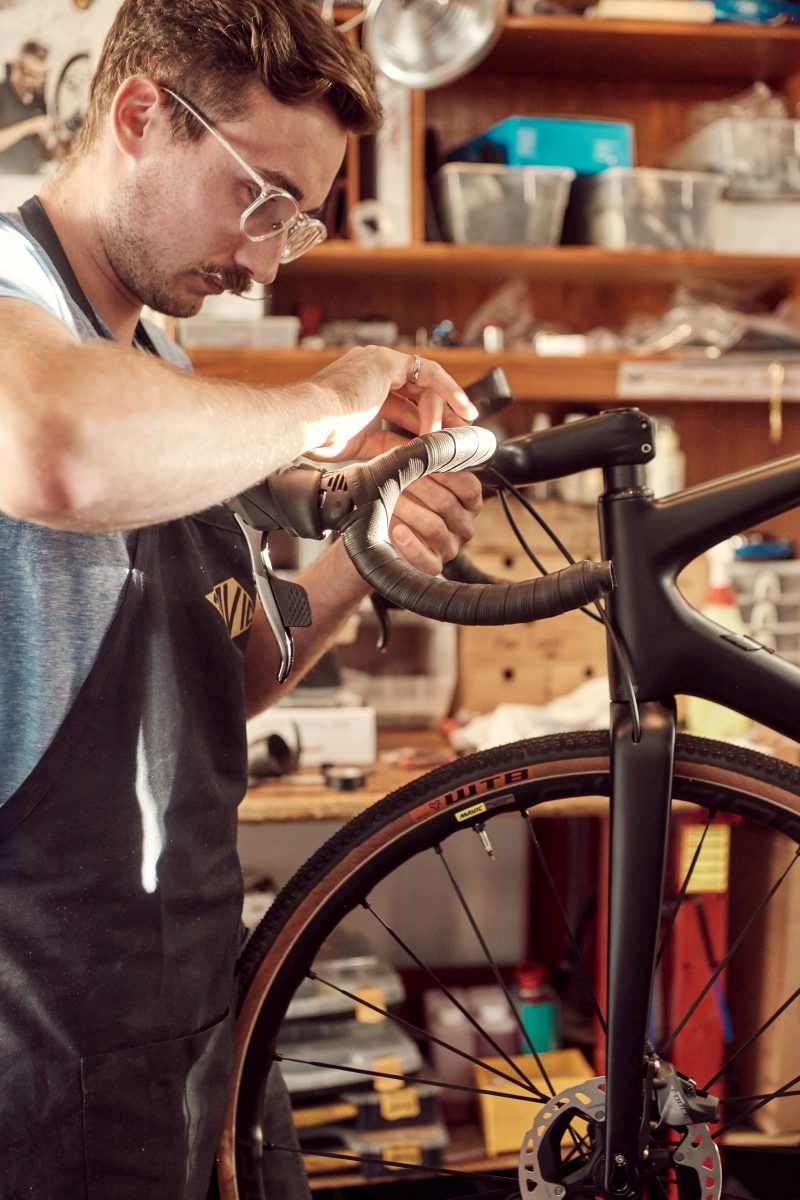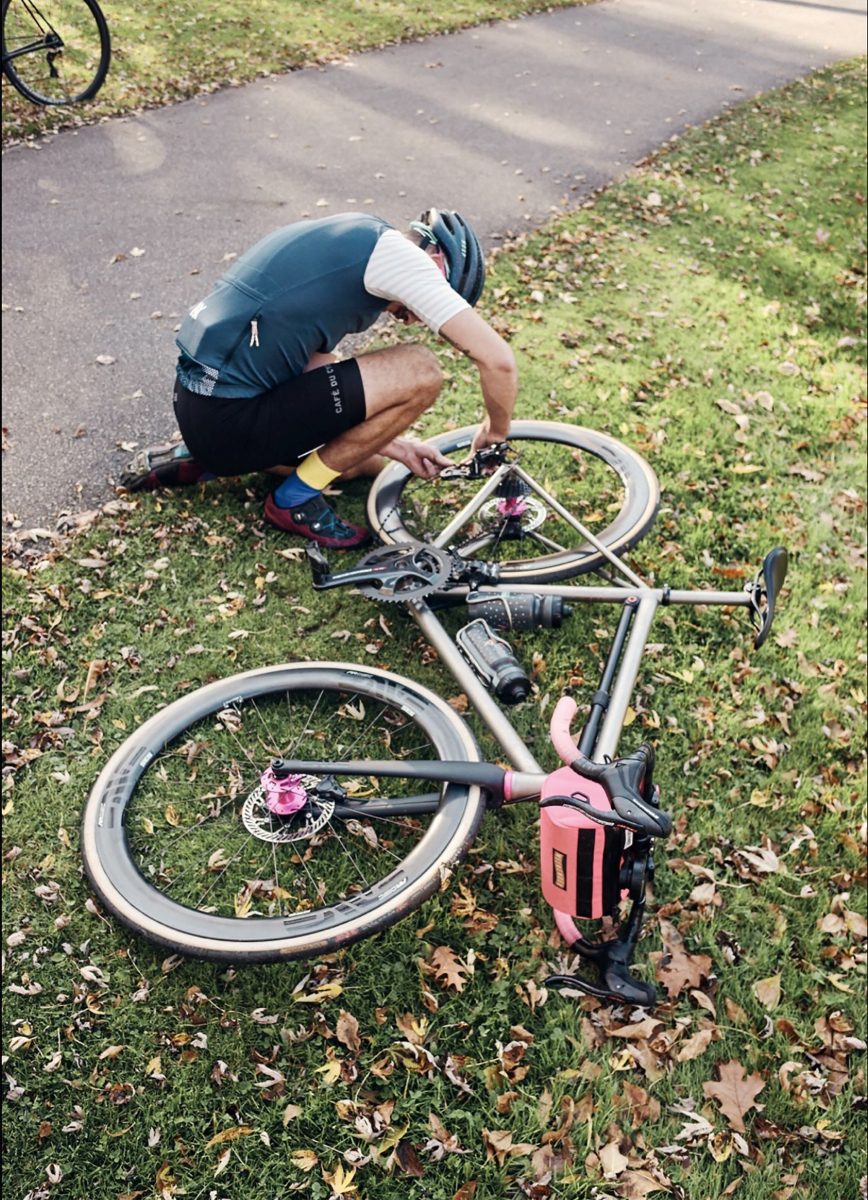6 things bike mechanics don’t want you to know
"Power tools are used surprisingly often"

When you walk into Blacksmith Cycle, Matt Norman’s head pops up from behind the bike he’s working on, and he greets you with a smile. Norman, a mechanic, applies his engineering background to building and repairing all types of bikes. He can typically be found in a jumpsuit or a heavy apron, his curled mustache completing his quintessential old-timey mechanic look. Working on bikes has taught Norman many things, and he shared with us a few secrets of the trade.

1. Power tools are used surprisingly often
When you think about a mechanic handling your bike, you’d hope they would be using a torque wrench and gently caressing the frame as they slowly tune it to perfection. Although this is true for some problems, in reality some issues require a bit more power. “Even on high-end frames, mechanics occasionally have to use power tools” says Norman. Seized brackets and a number of other reasons may call for something a bit more heavy duty than a standard wrench.
2. Even high-end bikes can have major issues out of the box
In an accidental justification for why you need a good mechanic, not just a good bike, Norman says there is sometimes an unexpected lack of finishing on high end frames.
“You’d think you’d be able to pull an F12 out of the box and put the brakes on it and have it line up perfectly, but that’s rarely the reality,” He says.
“Every once in a while you get glaring issues with a bike and you wonder how it even got to the stage of distribution.”
That being said, he’s often shocked at how smart some designs can be. “The solutions for internal cabling are evolving, and designs are getting more creative and clever.”
RELATED: The do’s and don’ts of bringing your bike to the mechanic this spring
3. They won’t judge you for not knowing the basics
Coming into a bike shop can be intimidating, especially if you feel like the issue with your bike is an easy fix. Norman says that it’s normal and expected that you won’t know these things, “It’s my job to know how to do this, and even I’m always learning,” he says.
“There are tons of basic things I don’t know about other topics,” he adds. “For example, I wouldn’t know the first thing about buying running shoes and would need to be walked through what to get.”

4. Building and fixing bikes takes longer than you would expect
As bikes become more technologically advanced and components get more complex, building and repairing them gets much more time consuming.
“To do things right takes a while,” says Norman. “You used to be able to strip and rebuild a bike in an hour, now it takes several.”
It’s probably better to focus on how your mechanic is taking the time to properly clean and repair your bike, rather than stewing about how long it’s taking to get done.
5. It’s much harder working on stock production bikes than custom bikes
“There’s just more care put into custom bikes,” says Norman. “You don’t have to do all the bullshit like facing brakes, reaming headtubes and chasing threads because the person who built it put a bunch of effort into it.”
As for when you should contemplate buying a custom bike, Norman recommends considering one any time you’re spending more than five thousand dollars.
“At that price, you can get a handmade bike with a slightly lower spec, but it’s better quality and it’s tailored to completely to you.”
RELATED: Kate Courtney pens country western ode to her mechanic

6. There is absolutely a right and wrong way to apply bar tape
Norman is prepared to die on this hill. When it comes to bar tape, “you start at the bar end and tape towards the stem,” he says. “It has to be as even as possible. Also, using cheater strips on the shifters is sacrilegious.”

Bonus tip: Don’t spend too much time winter-prepping your bike
Beyond getting full fenders and greasing all your bolts, most winter prep is somewhat frivolous. “You’ll have to take apart and do a full clean of your bike in the spring regardless,” says Norman.
